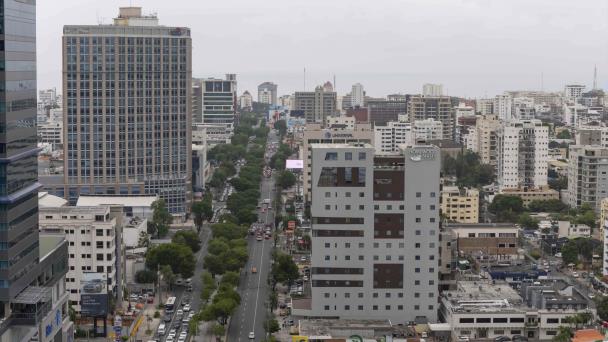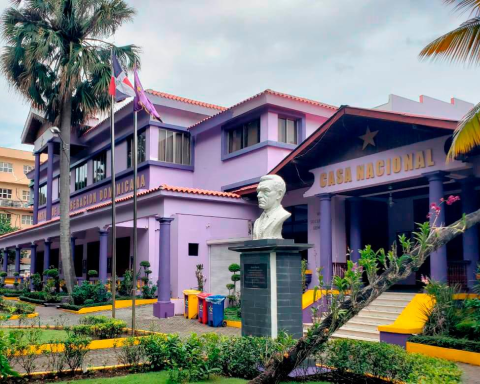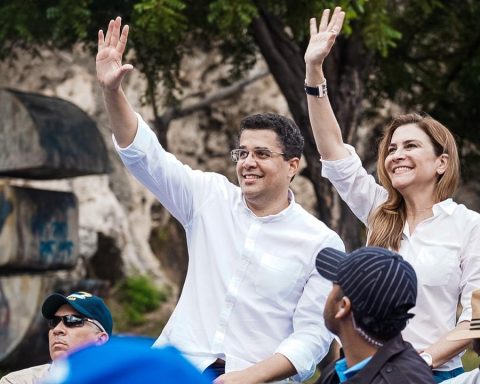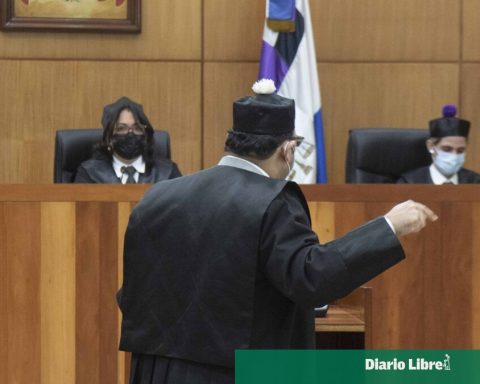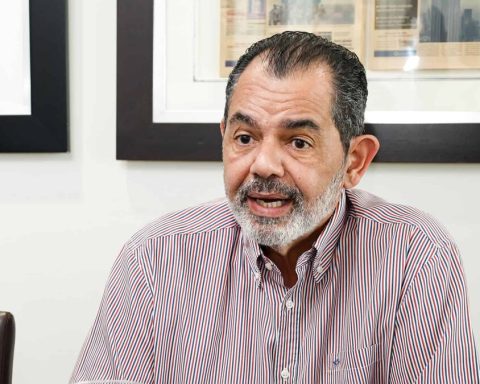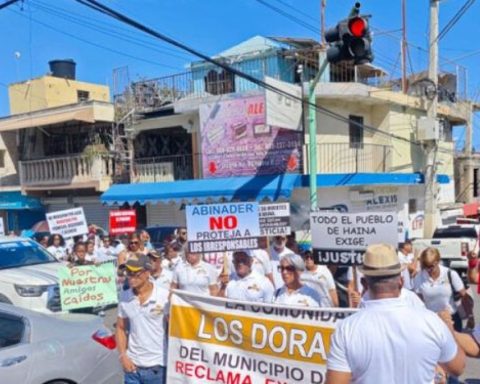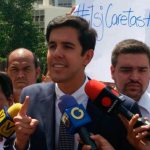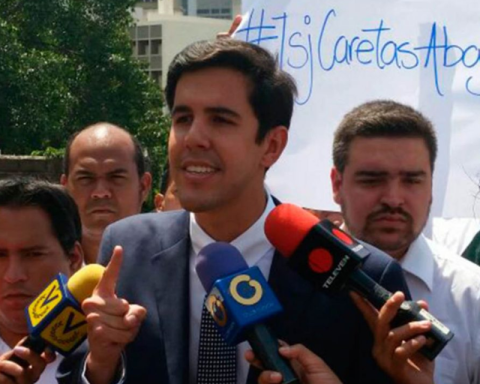On Winston Churchill and Abraham Lincoln Avenues, two of the country’s main arteries, businesses, homes and hotels coexist where only those staying at the hotel enjoy tax exemptions including 100% of the real estate transfer tax and 100% of the real estate property tax (IPI) for 15 years granted by the Law 158-01 and, among others, no percentage is withheld from national or international financing.
This law, managed by the Tourism Development Council (Confotur) since 2001, has been crucial to the growth of tourism in the country. However, economists and citizens have raised concerns about a possible on incentive the sector and its long-term implications for the national economy.
A resident near Churchill watched with concern the Expansion of a 20-level project which will house 330 hotel rooms, a luxury complex including corporate offices, and a shopping center, right next to several residential buildings of less than 10 floors.
The citizen wondered if the owners of the houses on the sidewalk next door They could also be exempt from various taxes for being located in the same area and for their contributions to the treasury through other taxes that they pay periodically, such as permits. constructionwhich the hotels do not pay for.
“Thanks to the Confotur Law and the efforts of the public and private sectors, investments of more than 60,000 hotel rooms have entered the country. The law, its regulations and its procedures set limits on these incentives and how they are used.”Technical Director of Confotur
The Santo Domingo Hotel Association It has 33 members, who together have 5,000 registered hotel rooms, including national and international brands, not counting independent hotels.
According to Yudit García, president of the union, between 900 and 1,000 new rooms have been added in 2024, to meet the demand in the city that is characterized by 40% for business tourism.
“The law of Confotur has been of great value for the development of housing projects located in tourist centers“This is an attractive and incentive that enables investments in this market,” said Annerys Meléndez, president of the Dominican Association of Housing Builders and Developers (Acoprovi). “This has allowed us to reduce housing prices and encourage a greater and better offer in the market.”
In accordance with Law 158-01the benefits of Confotur are awarded to the legal entities or corporations who register the project, not for the tenants or buyers of the housing units in the case of real estate projects.
Meléndez added that the expansion of offers in the sector, as a result of this legal framework, has boosted the construction and the real estate developmentsgenerating economic growth, new jobs and reducing informality. “In addition, this law has promoted tourism by providing more accommodation options,” he said.
Once the real estate has been acquired, the buyer has the duty to comply with its tax obligationspaying the taxes and other rates applied by the Tax Law, including IPI, which taxes 1% on the value exceeding 9,860,649 million pesos of the assets, taxes by construction when remodeling and other charges for general services of the mayor’s offices.
For the economist and executive vice president of the Regional Center for Sustainable Economic Strategies (Crees), Miguel Collado Di Franco, tourism is a industry that develops on its own in the countryso it does not require incentives to attract investment.
During his remarks to journalists for decision-making on possible reforms that the country requires, he indicated to Free Newspaper the need for evaluate these exemptions which affect the volumes of state tax collections, especially in areas that are already developed.
100% tax exemption benefits
Article 4 of the law establishes 100% exemption for investments made in the development of tourism, hotel and complementary offerings activities. Poles with little development and new poles in provinces and towns with potential like Pedernales, one of the poorest in the country and with less economic dynamism, which is currently being promoted by the government to attract investment.
He RImplementing Regulations of said regulations indicates that tax benefits will also apply to tourist accommodation or other facilities or activities of any nature built, such as:
- villas, plots of land, lots, apartments and moorings for boats, etc.
But note that such buildings must be intended to be operated by the promoters or developers or sold to other individuals or legal entities, provided that they are part of a project. classified for tourism offer.
To have access to tax benefits, the investor must comply with the presentation of a architectural preliminary projectan economic feasibility study, as well as the no-objection permits for land use from the Planning and Projects Department (DPP) of the Ministry of Tourism, the authorizations from the competent municipal and urban planning authorities, and the environmental authorization from the Ministry of the Environment.
In two years, 706 projects were approved
From 2002 to April 2024, Confotur had approved 3,076 projects to benefit from the tax incentives granted by the exemption regime.
For the period 2022-2023, the 22.9% of the total licenses issuedequivalent to 706 projects, while during the first four months of this year 119 approvals were granted, according to official statistics.
Despite 57% of hotel and tourist recreation space constructions are concentrated in La Altagracia9% is located in Greater Santo Domingo, where luxury towers and large mixed-use projects for commerce and short- and medium-term accommodation are proliferating. It is the third area with the largest number of tourist buildings.
In fact, in Santo Domingo and the National District there are 277 buildings classified as tourist attraction areas126 more buildings than those in Puerto Plata, another tourist hub that could compete with the all-inclusive resorts in Punta Cana.
The Estimated tax expenditure for 2024 The tax expenditure on tourism amounts to 12,570 million pesos, 3.7% of the total tax expenditure and 0.17% of the gross domestic product (GDP). The tax expenditure on tourism includes exemptions for all hotel and real estate projects that enjoy the benefits of the Law on Tourism. Confotur.
This means that tourism has done well. Free Newspaper spoke with economist Ellen Pérez Ducy, who said that the government should study the incentives Because the hotel industry can be a multiplier of indirect jobs, but at the same time the quality of the jobs it generates and its impact on the economy must be evaluated.
He specified that the Investors are interested in the country as a destination and for its maritime and air connection characteristics with other countries, as well as for its economic stability. “I am neither for nor against, but these exemptions should be reviewed; perhaps the sector does not need them because we are already well positioned,” he said.
Confotur: “Cities are important”
For the technical director of ConfoturBrenda Morales, “cities are important” in the diversification of Dominican tourism, especially because the trends have changed and Quisqueya competes with other economies where urban or city tourism and business travel are developed.
He defended the tax exemption strategy Noting that when taking into account that this activity impacts 19% of GDP, the incentives granted only represent 1% of GDP impacted by tourism.
“Thanks to the Law of Confotur and the efforts of the public and private sectors have entered the country investments of more than 60,000 hotel rooms“The law, its regulations and its procedures place limits on these incentives and how they are used,” he said.
